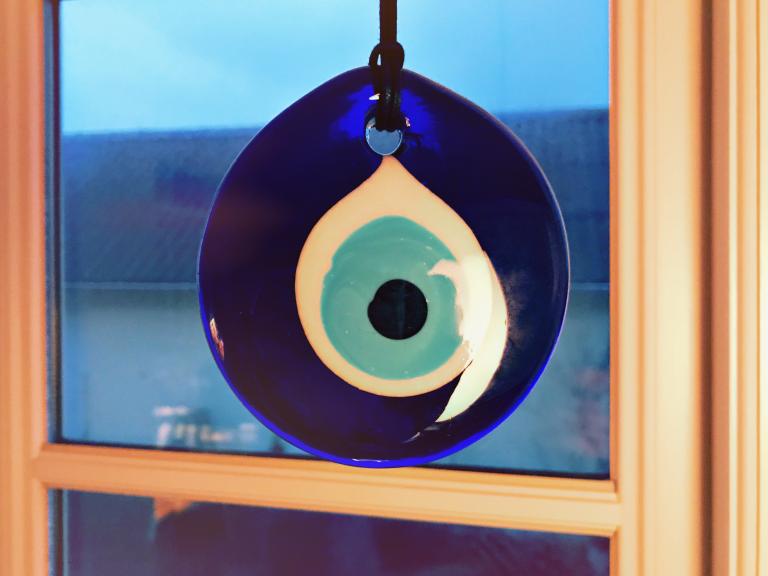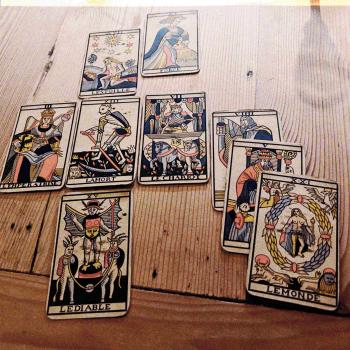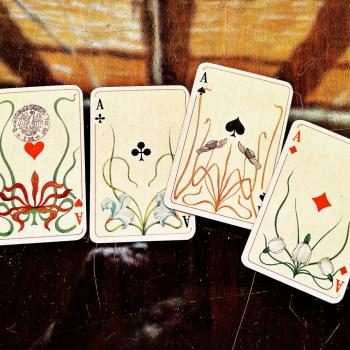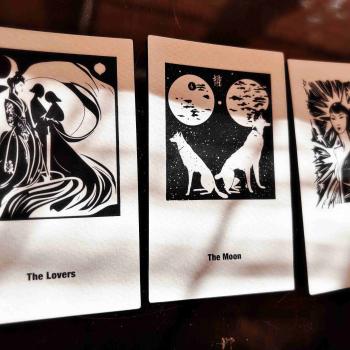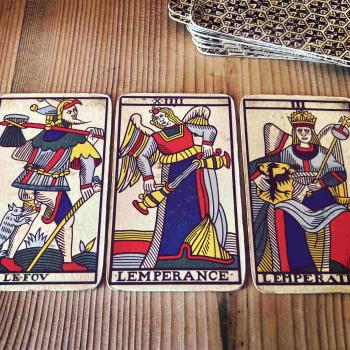Visibility demands a clearly defined identity, and identity demands the recognition of the socially constructed needs and desires of people. We all embody types. There’s no such thing as a ‘true self’ and because of that there’s no discovery of what we call an ‘inner landscape.’ All of what we call identity is empty of substance.
What there is, however, is speaking from certain positions. Think about the role played by a diviner, a fortuneteller, or the village’s cunning woman or witch. If we use modifiers that describe the role, we find that they are often attached to geography. Stereotypes are good to go to, as they have a way of spelling out the essence of what the mainstream population is thinking: The fortuneteller lives in a tent at the edge of town, the witch’s house is the last in the row of houses in the lower district in town, with the witch herself sitting on the hedge. The oracular diviner lives in a cave, promulgating her prophecies while enveloped in the natural, mineral fumes of the earth’s resources.
Now think of this: While the times have changed since these socially constructed images, and we now tend to encounter the diviner, the witch, and the oracle at fairs, sitting in big offices downtown LA, or doing online business, the aura of the ‘marginal’ that a tent, a cave, and a shady house exudes is still maintained as an extension of one’s identity as a ‘modern something special.’
This is all fine, until we realize that the fortuneteller’s den is not anymore the site of an identity that’s desired secret, silent, and subtle, or the opposite of ‘being at the center of the world’, imparting wisdom and advice, encouragement and empathy, validation and endorsement, all part of a carefully crafted world domination program.
I’ve had the great fortune of being schooled by women who spoke from a position of seeing the obvious. They were not 7-figure earning professionals, having access to 100 thousand plus email addresses. Nor were they in the business of coaching, psychotherapy, professional sorcery, or psychics tending the phone lines. They were simple women devoid of identity fancies. They were my Zen masters, who would often say things like, ‘how the fuck should I know?’ when asked to corroborate a projected future. ‘I’m only here answer a goddamn question, by looking at what’s obvious in the cards.’
I approach divination from this perspective, one that avoids all linguistic modifiers, amplifiers, and broadcasting ‘reach.’ If a person comes and asks: ‘How was it for him?’ – meaning, sex, I look at the cards and have three options: to say, ‘good,’ ‘bad,’ or ‘of no consequence.’ I leave it at that. I don’t offer sympathy or support. What has that got to do with what’s obvious? We see that we see. There’s no knowledge beyond this seeing. To imply that I know better, or that I know more would be an insult to the person I’m reading the cards for.
In a recent reading these cards fell on the table, precisely for the question, ‘how was it for him?’
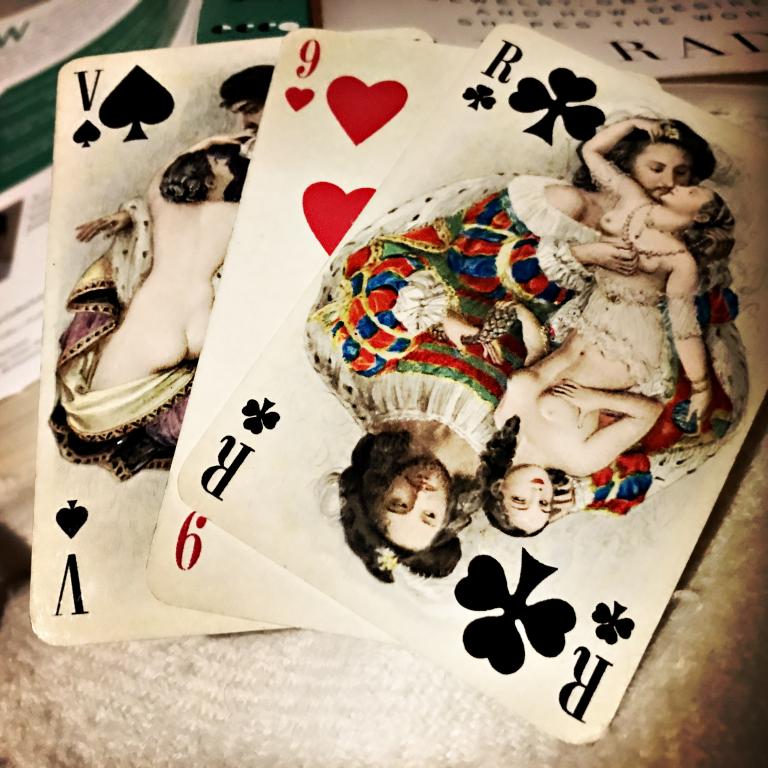
Jack of Spades, 9 Hearts, King of Clubs
‘It left him want for more,’ I said, and then kept silent.
‘What do you make of that?’, the woman asked, given that she and him are not together anymore.
‘I don’t make anything of it’, I said. ‘Sex with you just left him want for more. That’s all there’s to it.’
‘Yes, but we’re not together anymore, so there’s no next time’, the woman said.
‘So what?,’ I said. ‘How does knowing that he wanted more change anything?’ I then continued along some Zen lines: ‘desire is desire, now you fulfil it and now you don’t. It’s better to not have any, and thus be free. Taking other people’s desires on you is even worse, as it’s a sure waste of your own energy.’
‘Yes, but…’ I closed the talk, for as I said, I’m not in the business of giving support to fantasy, and wasting my time is not on my list of desires. Also, I didn’t feel the urge to dig deeper, and ‘help’ the person see how she can break a presupposed ‘sticky pattern’; ask her to probe who she really is, so she can find her inner self-reliance. In my experience, I’ve encountered people who did find themselves via work with the cards, meditation or other spiritual endeavor, who spoke from the position of having an answer to all the ‘why’s’ in their lives, only to discover three months later that they were in the market for a new identity re-fashioning. In other words, what we can conclude is that the ‘true self’, well integrated and what not, is often boring, leading to more discovery of new experiences, all breeding more experience and hence more desire. Now that’s a sticky pattern that’s worth killing off.
I’ll say this here: Next time you read the cards don’t think of yourself as embodying a desired identity that locks you in words associated with some fad notions of what compassion and support is all about. Look at the space you occupy, and how your voice as a diviner fits it. Essentially, no one is interested in who you are and how you went from rags to riches. What people want is an answer to a question. Some may be addicted to your ‘soothing’, ’embracing’, and ‘nurturing’ nature, your wisdom galore, and your sounding like a self-help book of the better caliber. But if you are to render service that’s beyond reproach, you’ll know that just as you don’t fall for any bullshit, period, you won’t fall for people’s addiction to you, or, indeed, as the case may also well be, your own addiction to them. People’s need of fantasy is not even flattering.
If you want to speak from the fortuneteller’s den, you will also remember that what applied to Margaret Thatcher applies to you too: ‘if you have to tell people you are, you aren’t.‘ I serve this mantra to myself on a daily basis, as it saves me from committing the error of forgetting to be condescending where being condescending is way past due its time.
♠
Stay in the loop for ‘Read like the Devil’ courses. Next is the Playing Cards Foundation Course, opening for registration in late January.

